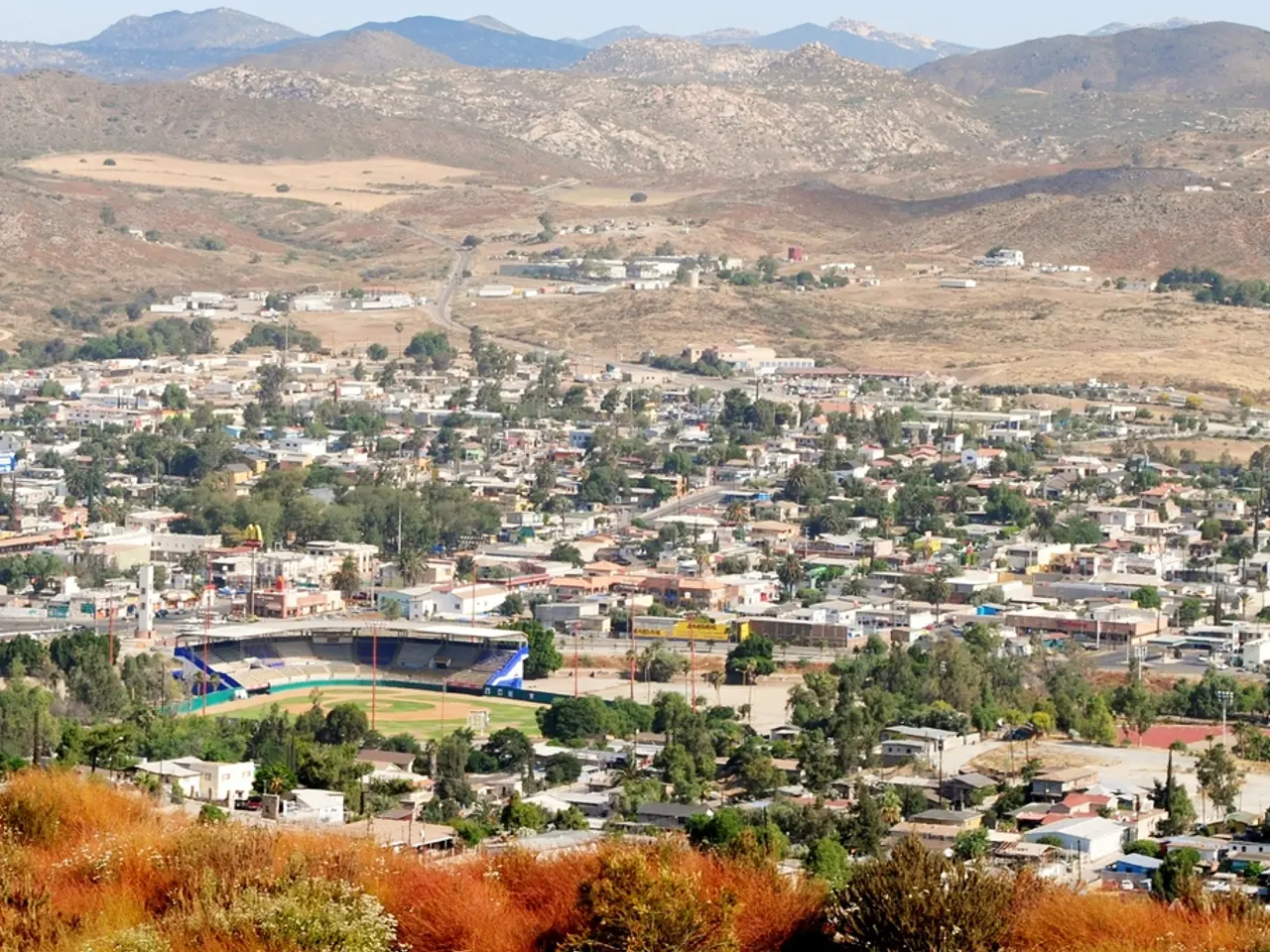Political district manipulation, known as gerrymandering, has significantly altered the political landscape for Republican (red) and Democratic (blue) states.
In the political landscape of the United States, the issue of gerrymandering continues to be a contentious one. This centuries-old practice, first identified by Massachusetts Gov. Elbridge Gerry in 1812, has evolved with the times, becoming more precise thanks to advanced computer algorithms.
States like Florida and Texas have some of the worst examples of gerrymandering, according to various analyses. The Gerrymander Project, for instance, found that the county splits in Texas are higher than the average split per state. Similarly, Texas earned an F grade based on the Gerrymander Project's formula due to its districting map giving the GOP an advantage. On the other hand, Arizona, which has a Republican majority in its state legislature, does not have a partisan advantage in its state districts. The state has been using an independent redistricting commission since 2000, and its districts are seen as "fairly compact" with the average number of county splits.
Virginia, which has a slight Democratic majority in its state legislature, has no partisan competitiveness in its congressional districts, according to the Gerrymander Project, and received an A rating. Interestingly, Virginia's current district maps were drawn up by a special master following a court case brought by the state's constituents and some local elected officials.
The practice of gerrymandering has led to confusion among voters and more examples of elected officials running unopposed. Kareem Crayton, vice president of the Washington, D.C., office of the Brennan Center for Justice, noted that redistricting campaigns since the 2000s have led to a systemic cycle of gerrymandering, especially in the South. Crayton also stated that such county splits have led to more instances of candidates from opposing parties choosing not to run due to the gerrymandered district putting the odds against them.
The Gerrymander Project has created a mathematical algorithm to create district maps using key demographic factors, aiming to remove political bias. One example of a district with a questionable boundary is the 13th congressional district in Illinois, which has a nearly 2,300 square mile boundary that keeps a huge concentration of Democratic leaning voters.
Current efforts to legislate against gerrymandering in the United States include states considering independent redistricting commissions, "trigger" legislation allowing states to respond to mid-decade redistricting by others, and court challenges aiming to restrict partisan gerrymandering at state levels. However, the Supreme Court's 2019 decision removed key guardrails for preventing states from engaging in severe party redistricting, making state-level reforms and election policies the primary battlegrounds against partisan gerrymandering.
Public opinion consistently shows that constituents seek fair maps regardless of their political affiliations. Ballot initiatives that remove the legislature from the districting process have risen in popularity in many states and have made a huge difference. Yet, the current political environment shows intensified partisan conflict, with both Republicans and Democrats threatening retaliatory map redraws, effectively escalating a "gerrymandering war" following recent census-based redistricting.
In conclusion, while some progress has been made in addressing gerrymandering, much work remains to be done. The ongoing debate and legal challenges highlight the importance of fair and unbiased districting in maintaining a democratic society.
- The business of creating district maps, known as gerrymandering, continues to fuel debates in American politics, a legacy dating back to the 1800s.
- Advanced computer algorithms have refined this centuries-old practice, providing more precise manipulation of voting districts.
- States like Florida and Texas, notorious for gerrymandering, exhibit higher-than-average county splits according to various analyses.
- Texas, for instance, has been rated F by the Gerrymander Project due to its partisan districting map benefiting the GOP.
- On the contrary, Arizona, with a Republican majority, has no partisan advantage in its districts, attributed to an independent redistricting commission established in 2000.
- Virginia, with a slight Democratic majority, has no partisan competitiveness in its congressional districts, which were drawn by a special master following a court case.
- The practice of gerrymandering fosters confusion among voters and encourages more elected officials to run unopposed, as noted by Kareem Crayton, vice president of the Brennan Center for Justice.
- The Gerrymander Project's research shows that redistricting campaigns since the 2000s have led to a systematic cycle of gerrymandering, particularly in the South.
- The Project has developed a mathematical algorithm to create district maps using key demographic factors to neutralize political bias.
- An example of a questionable boundary can be found in Illinois' 13th congressional district, which has a 2,300 square mile boundary isolating Democratic leaners.
- In response to gerrymandering concerns, current legislative efforts include independent redistricting commissions, "trigger" legislation, and court challenges to restrict partisan gerrymandering at state levels.
- Despite the Supreme Court's 2019 decision that weakened safeguards against severe gerrymandering, state-level reforms and election policies are remain the primary battlegrounds.
- Polls reflect a general consensus among constituents who want fair maps regardless of their political affiliations.
- Popular initiatives to remove the legislature from districting processes have emerged across several states, leading to significant changes.
- Video content on online platforms and state-wide seminars on education and self-development subjects, such as goal-setting and lifelong learning, can help mobilize the public and educate them on the importance of unbiased districting.
- Personal growth strategies like mindfulness and productivity skills training can help empower individuals and community leaders to drive meaningful change in their local political landscape.
- The NFL season is approaching, offering a respite from the ongoing political debates, as fans focus on their favorite football teams, like the San Francisco 49ers, New England Patriots, or the Dallas Cowboys, in sports-betting activities or NCAA football analyses, reminding us that sports can serve as a positive outlet in times of intense political strife.




